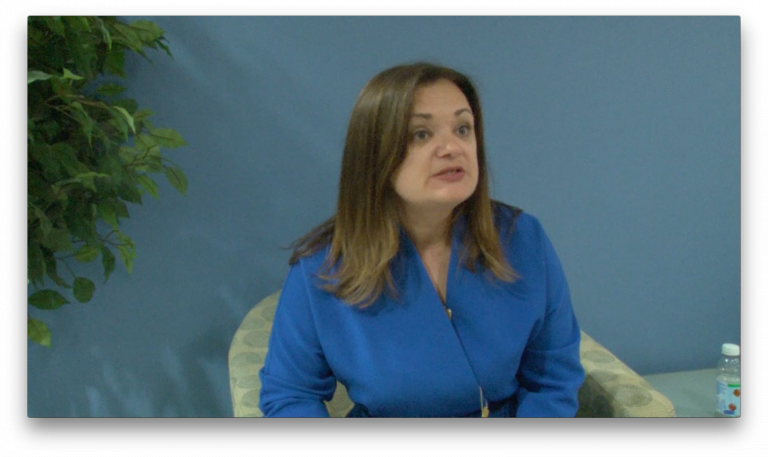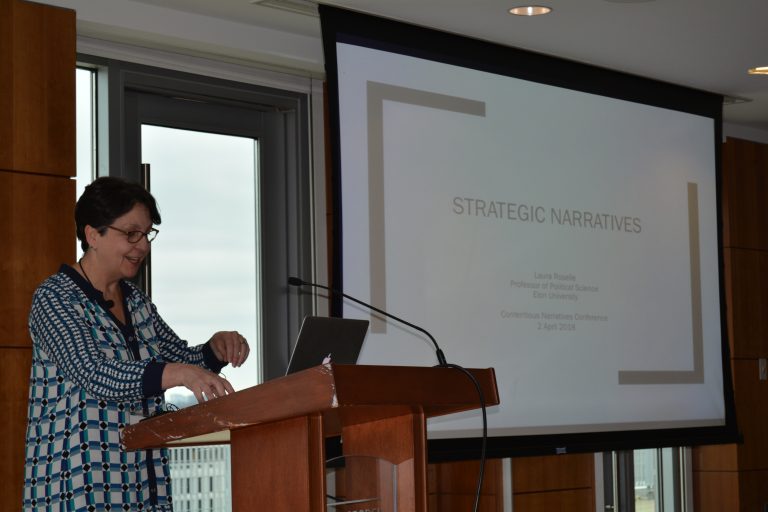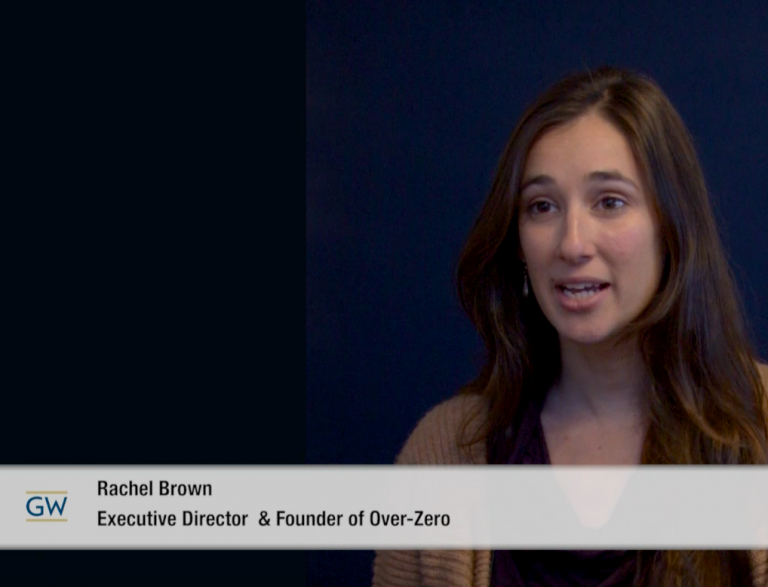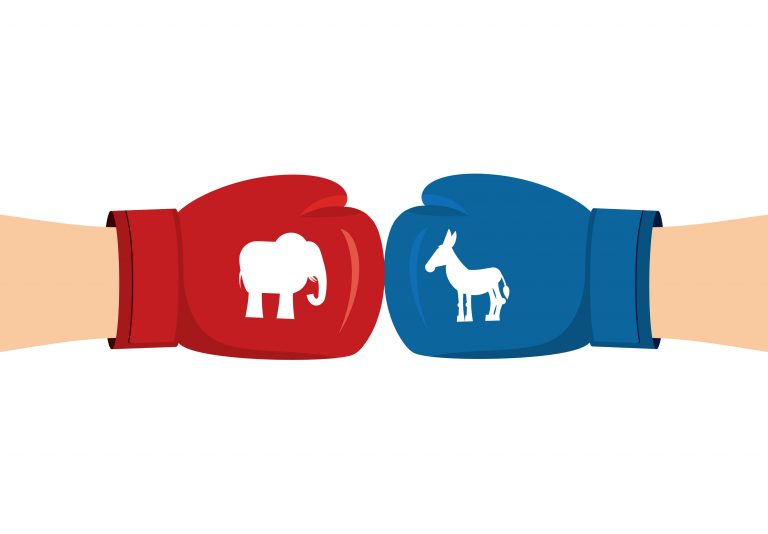Tag: Research Highlight
Strategic Narratives – Interview with Professor Laura Roselle
Strategic Narratives: Interview with Professor Laura Roselle
At the recent Contentious Narratives conference at GW's Elliot School of International Affairs, Professor Laura Roselle discussed her conception of 'strategic narratives' - the use of communicative tools by political actors to shape their roles in a rapidly changing world order.
The presence of new ICT technologies in developing nations is a similar phenomenon, in terms of its ability to present new narrative possibilites for both leaders and sub-groups within a state. In conflict-fragile states such as South Sudan, ethnic rivalries have been exacerbated by ICT enhancing group solidarity and amplfying perceived aggression or hostility from other groups - narrative arcs that can lead to bloodshed.
These same strategic narratives can also be used to reconcile divided societies. In Kenya, there have been successful cases of inter-ethnic cooperation following periods of violence, through ICT. Rather than encouraging division, these tools were used to crowdsource inter-group policing under the banner of a united Kenya.
The use of a strategic narrative can both hinder and encourage violence in these conflict-fragile states. Roselle's conception of these narrative arcs, and how they can come to define the consequences of political change, is vital to consider when examining the effects of ICT in the developing world.
Collective Blame and the Media’s Role in Prevention
Collective Blame and the Media's Role in Prevention

Research into the effects of 'collective blaming' of ethnic and religious groups for acts of violence suggests that reciprocal acts against innocents can occur as a result. The media's role in this process is vital, as demonstrated by a series of experiments conducted using news clippings that showed collective blame to be undermined when its hypocrisy was highlighted.
In response to the President's retweet of an anti-Muslim video on Twitter, Vox published a profile of this research and conducted an interview with Emile Bruneau, one of the researchers involved, to discuss how collective blame leads to dehumanization and ultimately policies that are harmful to minorities such as Muslims.
Professor Bruneau spoke to the Media and Peacebuilding Project to elaborate on his comments and explain further how the media can act as both a help and a hindrance when it comes to collective blame.
Q: Do you have any ideas for how your research could guide media actors in shaping narratives about groups?
A: Three lines of my recent research speak to this. The first is on ‘meta-perceptions’ (how we think another group thinks of our group), and ‘meta-dehumanization’. In general, Americans have strong perceptions that Muslims and Muslim groups (Iranians, Palestinians) dehumanize and dislike us. And these perceptions have consequences. For example, the more Americans think Iranians dehumanize ‘us’, the more they oppose the Iranian Nuclear Accord, and the more they support open warfare against Iran. However, when we sample Muslim groups, they report much more respect for America and Americans than we think. I imagine that these negative meta-perceptions are driven by the media. In fact, I felt this when I first went to Palestine to conduct research in 2009. I had never met a Palestinian, and when I arrived in the West Bank I was pretty nervous, and convinced that I would be universally despised. My experiences quickly dispelled these perceptions as I was treated with warmth and respect everywhere I went. I have now been there for three summers, and never experienced any of what I expected based on media accounts. So the media could better report the actual views of other groups towards our own.
Second, converging with previous research, I’ve found that the degree to which people support the ‘underdog’ in a conflict is heavily tied to how violent that group is perceived to be. If we see the underdog group as inherently violent, our support for them evaporates. The media often cover only the most extreme and violent efforts by a group (e.g., Palestinians), which shapes the narrative and erodes sympathy and support. When I showed a trailer to a documentary depicting an ongoing Palestinian non-violent campaign, attitudes and behavior towards Palestinians improved (without eroding attitudes towards Israelis).
Third, my recent research on collective blame suggests that stories that try to directly induce empathy towards another group are less successful than interventions that challenge underlying assumptions and beliefs about that target group. Although I have not tested this yet directly, my hypothesis is that people refuse to mobilize their empathy towards another group if they think that other group does not deserve their empathy. The best way to reaching someone’s heart may be by first changing their mind. My recent work with an intervention tournament suggested this to be the case.
Q: What are the ethical obligations of journalists for ensuring collective blame cycles are not continually perpetuated?
A: The research I presented suggests that gently reminding people that they do not hold other groups responsible for the actions of group extremists if effective at checking their blame of Muslims for violence committed by a Muslim extremist. However, taking the less than gentle approach of ‘calling out hypocrisy’ and trying to shame the other side will likely backfire.
In his Vox interview, Bruneau highlights how hypocrisy, when deployed in the correct way, as the most successful method in preventing collective blame cycles from being exacerbated. Other visual stimuli, depicting Muslims as upstanding members of society and generally attempting to humanize them to the audience, did not counteract collective blame as successfully as the hypocrisy method.
Content used to induce this feeling of hypocrisy included:
-A Muslim woman on a news network complaining that Christians are never collectively blamed for the violence of an individual.
-Reading passages from the Old Testament as though they were Quranic verse, later to be revealed as Biblical.
-Asking participants to 'rate' how much blame should be assigned to innocent Muslims in various locations and professions for acts of terrorism.
As Bruneau points out in his comments in this interview also, hypocrisy cannot be deployed as a weapon without leading the audience to the conclusion needed to overcome their prejudice. The examples used in his research revealed that subtly exposing hypocrisy using the stimuli mentioned was the most effective tool.
Q: Could your research be applied to those of political parties, i.e. avoiding blaming Democrats or Republicans for the actions of an individual?
Absolutely. I’m focusing on this research now.
Q: Do you know of any examples where narratives of collective blame have been successfully disrupted, as part of peacebuilding efforts? How did they achieve this?
I haven’t seen peacebuilding efforts focusing on collective blame. I don’t think it is on their radar. Generally, peacebuilding efforts are focused on empathy and trust. Which is potentially the problem – if you don’t address the biases that may be hindering empathy and trust, people may be resistant to ‘trust-building’ and ‘empathy-building’ efforts.
Emile Bruneau is a research associate and lecturer at the Annenberg School of Communication at the University of Pennsylvania. He is the lead scientist at the Beyond Conflict Innovation Lab. He has worked in conflict zones in Ireland, Palestine and Sri Lanka.
Rachel Brown Interview
Boots on the Ground: Sisi ni Amani and the fight to prevent political violence in Kenya
Interview with Rachel Brown, director of Project Over Zero, former CEO of Sisi Ni Amini
As the executive director of Project Over Zero and former CEO of Sisi ni Amani, Rachel Brown has extensively examined the effects of mobile phones and related technologies on political violence. Rachel moved to Kenya in 2010 to research the causes of the country's frequently violent election process, revealing the extent to which cell phones were changing how violence was organized and how misinformation was spread. Local peacebuilders themselves were struggling to keep up, and needed their own tools to counteract the intensity and scope of these waves of violence that were being facilitated by technology. Sisi ni Amani was born as a result.
The organization approached the issues at hand with a ’10 steps ahead’ approach, owing to the speed at which misinformation, rumours and fear could circulate among communities. The initiatives used by Sisi ni Amani included: subscribing community members to messaging programs that could correct false information quickly; civic education programs over text message; invites to political debates and community meetings; and the promotion of radio programming that hosted civic engagement projects. These tools were designed to inhibit the potential for violence in the upcoming 2013 elections in Kenya.
Rachel remains ambivalent as to whether mobile phones and related technologies can themselves be blamed for the violence. Ultimately, she points out, human impulses will find a way to exercise themselves with or without cell phones. However she still emphasizes the ability these devices have to change how fast (mis)information can be spread, a new phenomenon that is changing how peacebuilders can effectively address the potential for political violence. Social media is certainly comparable in how it has transformed the information environment enough that peacebuilding efforts are required to adapt.
Project Over Zero, Rachel’s new organization, is particularly interested in addressing the issue of ‘dangerous speech’. The term ‘hate speech’ she likes to avoid, describing its implications of intent as limiting. These forms of speech are ones that police norms within communities; offer coded meanings that foreign observers can often fail to pick up on; and are capable of organizing groups of people with relative ease. The dehumanization of certain groups is the most prominent form of dangerous speech that Rachel emphasizes.
These forms of speech look different from community to community, but often share general themes that make the study of dangerous speech applicable here in the US. The importance of identity in both exacerbating and inhibiting violent action is a common thread among many communities, and this observation can be used by peacebuilders as well – both at home and abroad.
Liberals and conservatives are similarly motivated to avoid exposure to one another’s opinions
'Accuracy motive' can promote depolarization in an era of intense ideological self-sorting

Professor Jeremy Frimer conducted research indicating liberals and conservatives to be equally as guilty of ideological ‘self-sorting’, largely to avoid the cognitive stresses of having their beliefs challenged. He offers further thoughts on the relevance and strategic value of his work.
Q: What was the most surprising finding from your research?
A: The biggest surprise was that liberals and conservatives are similarly motivated to avoid listening to one another. Several psychological theories and past research findings characterize conservatives as more small-minded, fearful, and tribal than liberals. Our paper, along with others in a growing wave of research, found ideological symmetry.
Q: Your research focuses on 'hot-button' issues that often provoke visceral reactions. Could attempts to avoid ideological exposure be less prominent in other areas of political discussion?
A: Yes, it is possible. Economic issues tend to be less charged than social issues. But I can’t say based on our data. From our data, I can say that the motive to stay in the bubble was larger for issues like presidential elections, smaller for issues like abortion and legalizing marijuana, and smaller again for issues like climate change and gun restrictions. The smallest effect was for climate change, the (reasonable) debate over which seems to boil down to the role of government in the private sector and globalism vs. nationalism. Perhaps, this has more to do with economics and less to do with social issues than some of the more divisive topics.
Q: What do you consider to the best path forward for overcoming this cognitive dissonance and encouraging political reconciliation?
A: For individuals who want to make a change in their lives, the key is to take on an attitude where the goal is to accurately understand issues. Past research found that the bias to seek out belief-confirming information tends to evaporate and sometimes even reverse when people have an accuracy motive. Another avenue might be to “depolarize”. A new organization called Heterodox Academy is advocating for ideological diversity within academia, and currently developing a “depolarizing app” that will hopefully help individuals understand where the other side is coming from, and develop a receptive and humble approach. I also wonder whether social media platforms encouraging cross-cutting conversations might help. One of the keys may be getting past the slogans and actually learning about how policy works. A recent paper found that people can maintain extreme positions when they are in an illusion of understanding When asked to explain how their preferred policies would actually work, they realize that they don’t understand what they are talking about, and become more moderate on the issues. The 2016 election was remarkable for the quantity of coverage juxtaposed by the near absence of substantive policy discussion.
Jeremy Frimer is a professor of psychology at the University of Winnipeg.






